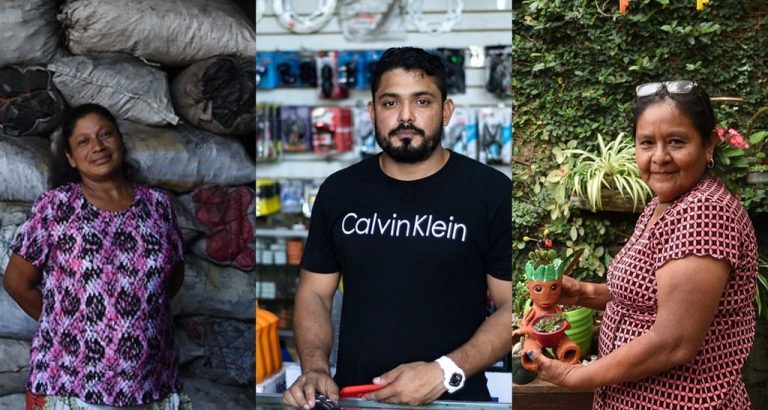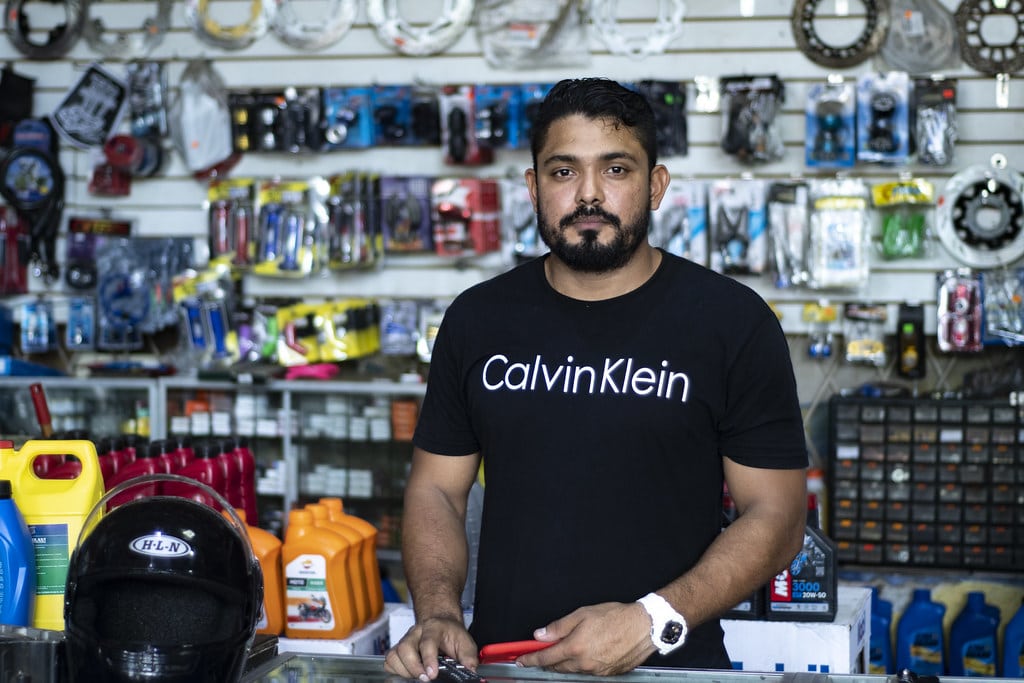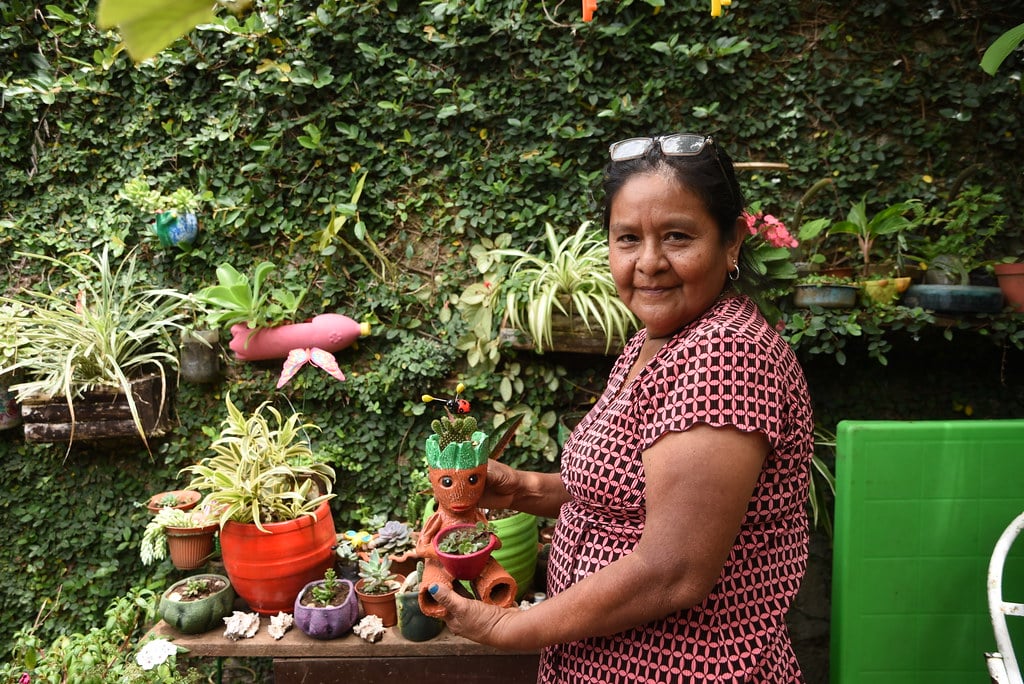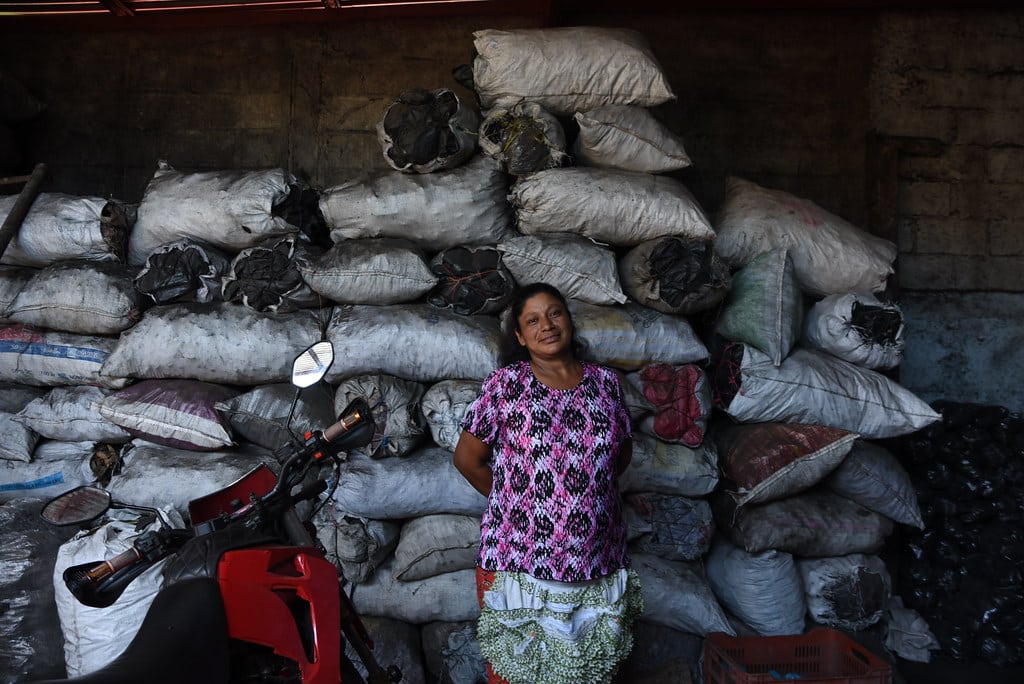8 de septiembre 2022

The Return of the Military

PUBLICIDAD 1M
PUBLICIDAD 4D
PUBLICIDAD 5D
Three small business owners in Managua, Masaya and Catarina tell how they’ve managed to maintain their businesses amid Nicaragua’s economic crisis

Small business owners in Managua
Buffeted by an economic crisis that has continued in Nicaragua for the last four years, the country’s small business owners must perform feats of acrobatics to maintain their presence in the market and avoid having to lay off employees. Meanwhile, the high taxes of the Ortega regime, which seeks to increase the State coffers at any cost, are tantamount to extorsion. Nonetheless, some companies have managed to be successful, although they remain exceptions to the rule.
Hansell Maltez runs a mechanics shop in Managua where they repair motorcycles and sell spare parts. Sofia Guererro, from Catarina, sells furniture and ornamental plants to buyers across the country. Azalia Garcia is also getting ahead with her sales of charcoal, firewood, eggs, kerosene and lottery tickets in Masaya. Below, we offer a portrait of these three small business owners, who have maintained their momentum despite the crisis. All three run solid, small companies that not only are profiting enough to pay their workers’ salaries, but also are continuing to grow.
A year ago, Hansell Maltez administered a thriving business, combining a motorcycle repair shop with the sales of spare parts. He confessed, however, that – as a precaution – he has currently suspended plans for importing the spare parts himself.
What hasn’t slowed, however, is the idea of importing used tires for his customers’ motorcycles. A year after he began this project, he summed up: “I had a proposal to bring in used tires. We gave it our best, and we were able to make a go of it with the support of “Fundeser”, a credit agency specializing in loans to small producers and micro businesses.
Maltez recalled some of the steps along the way: “We made the calculations, got the numbers and analyzed the market. We saw that no one was bringing in used motorcycle tires. So we located a supplier in Europe, and I traveled to Spain to meet with him.

Hansell Maltez, owner of a motorcycle workshop and spare parts salesroom in Managua. Photo: Confidencial archives
As a result of these negotiations, “I brought in a container with 5,000 used tires for motorcycles, including brands like Dunlop, Pirelli, Michelin, Bridgestone and Metzeler. We’re currently selling these on Facebook, as well as directly in our shop.”
By way of example, he mentioned that a new Michelin tire for a messenger bike (the most basic) costs 3,000 cordobas [about US $83], while he sells a used tire of the same brand, with 90% of its useful life left, for 1300 cordobas. [US $36].
“The market has received us very well, although I think a lot of customers don’t know about us,” he noted. Regardless, “mouth to mouth publicity has been key to our growth.” That’s especially true since the cost of the replacement parts he sells has increased by 40% and even more, due to the rise in the cost of maritime transport.
“Before the [global logistics] crisis, a cargo coming from Europe cost 8,000 Euros [US $7,924]. Now it costs 11,000 Euros [US $10,896]. The rise is supposedly due to the increased price of fuel, logistics, the lack of containers,” he specified, adding that “the price of motorcycle oil is rising month by month, but I believe that’s because of the greed of the local companies.”
Hansell Maltez’ efforts have allowed him to continue operating two Managua locales. He told us that sometimes the principal site is hard-put to attend to some twenty or more clients daily, who take their motorcycles to be repaired. Some are looking for complex repairs, such as an overhaul, while other repairs are simple, like checking the brakes, changing the oil, or just performing routine maintenance.
Technically, the growth of his business isn’t “despite the crisis”, but rather “thanks to the crisis”. The economic pinch has forced many to abandon their dream of buying a car and substitute that of acquiring a motorcycle. Others see this type of vehicle as an option to make a living and get around the unemployment.
Maltez plans to head back to Europe towards the end of September this year, seeking a way to broaden the used tire business. In one or two years, he hopes to stop buying spare parts from a local provider and begin to import them himself.

Sofia Guerrero, based in Catarina, sells furniture and ornamental plants all over Nicaragua. Photo: Confidencial archives
When Sofia Guerrero, now 58, was only a little girl of six, she’d get up at one in the morning to travel from Catarina to Chinandega with her mother and sell plants. Five decades later, Sofia now sends her own daughters over even greater distances to sell plants, plus furniture and handicrafts.
The difference is that now they travel in the truck she was able to purchase with the earnings from her business, and with loans from the FDL microfinance institution, that offers loans for work and for home improvements.
“The business continues, but now it’s in my daughter’s hands. She’s responsible for the longer trips, so I don’t get too tired. I do the administration from home: I watch how sales are going, and what we can do to grow. I only accompany her when we go to Managua for business transactions,” Guerrero explained.
Hers is truly a family business. All of her children are involved, including one who has just graduated in critical care, and his wife who’s an OB/GYN doctor. Both sell furniture on line, “they don’t wear themselves out like before, when I’d go out with the basket [of plants]. Now, they do it via Facebook,” she said, comparing the two eras.
When she would go with her mother to Chinandega as a child, she could only carry a few plants in the basket [usually carried on the vendor’s head]. Today, her daughter takes furniture, handicrafts, fruit… “a little of everything, to be able to pay for gas, maintenance of the truck, and their food.”
On the return trip, they bring coconut shoots, fish and shrimp from Bilwi; farmer’s cheese from Juigalpa; corn or baby corn from Jalapa; dried coconut from El Rama, etc. to sell in the Pacific region. “We’re always looking for a way to increase what we bring or take, so our books will balance,” Sofia commented.
The medium-term goal is to save money and put it together with what they can get from the sale of their current truck, so they can buy another. “I want to replace it with one from this year,” she asserted. Then, they want to expand their rental home business. These plans include building another house, in order to increase the availability of spaces they rent out.

Azalia Garcia sells charcoal, firewood, eggs, kerosene and lottery tickets in Masaya. Photo: Confidencial archives.
Selling firwood or charcoal doesn’t seem a very glamorous business, until you look at the size of the operation that Azalia Garcia manages in Masaya. In this business, she can easily have an inventory worth 100,000 cordobas [US $2,772].
A year ago, while awaiting the birth of her daughter, Azalia was selling firwood, charcoal, eggs (wholesale and retail) and lottery tickets, plus guarding the motorcycles of those going to the market, which is right in front of her house. Today, one year later, she, her daughter-in-law and her older daughter take turns caring for little Gabriela Alejandra while managing all aspects of the business.
Right now, charcoal commands a very high price, due to the rainy season: a hundred sacks goes for the 16,000 cordobas [US $444], when just a few months ago they cost from US $227 – $305. In comparison, at Christmas, the price can go as high as 20,000 cordobas [US $555]. Nonetheless, the sales are steady, because “people need it for cooking.” This is also generally true for the sale of firewood and kerosene.
Their next largest source of income comes from their “parking lot”, and from safeguarding motorcycles. This is still functioning, but has been somewhat affected by the police operations eliminating unlicensed motorcycles from the road. Finally, having made the leap to being a wholesale Lotto vender, she now employs her oldest son in this.
Azalia also hasn’t given up selling eggs, because they’re a basic food item and consumed constantly. The problem with this is that the eggs don’t yield much profit: she buys a carton for 120 cordobas and sells it for 140, generating only the equivalent of US 55 cents each carton. However, that’s also the reason that people continue buying them.
Her latest project was made possible by another loan authorized by the Financiera FDL microfinance institution. The small loan allowed her to purchase a freezer to sell Big Cola products.
These days, “money doesn’t stretch”, so the client who previously bought 20 bags of charcoal, now will purchase only 15; the customer that used to buy 100, now buys 80. Still, the business remains sound because “we keep struggling: getting up early, treating the customers well, with charm.” It’s also “a joint effort, together with my daughter and son, my daughter-in-law and my husband,” Azalia told us. Although this last year they had to lay off two employees to stay afloat (one that packed the charcoal, and one that watched the motorcycles), she maintains her goal to work hard and take advantage of opportunities to continue growing.
This article was originally published in Spanish in Confidencial and translated by Havana Times
Archivado como:
PUBLICIDAD 3M
Periodista nicaragüense, exiliado en Costa Rica. Durante más de veinte años se ha desempeñado en CONFIDENCIAL como periodista de Economía. Antes trabajó en el semanario La Crónica, el diario La Prensa y El Nuevo Diario. Además, ha publicado en el Diario de Hoy, de El Salvador. Ha ganado en dos ocasiones el Premio a la Excelencia en Periodismo Pedro Joaquín Chamorro Cardenal, en Nicaragua.
PUBLICIDAD 3D